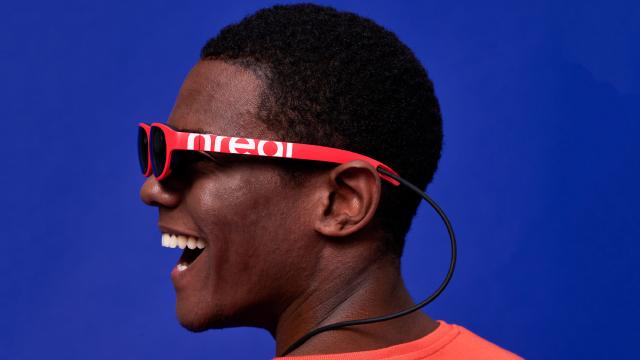For years, Magic Leap operated in complete secrecy, not even revealing to the public what products or services it planned on producing. The clandestine approach created a strange mythos around the startup that finally started to clear at the end of 2017 when the company announced its flagship product, an augmented reality headset.
But possibly even before the Magic Leap finally revealed to the public what it had been working on all that time, the company’s secrets were being used to create a knockoff product in China, according to a lawsuit filed in a US federal court on Monday, which was first reported by Bloomberg.
Magic Leap did not immediately respond to a Gizmodo request for comment on the lawsuit.
The suit alleges that Chi Xu, a former employee who left Magic Leap in 2016, formed “a directly competing company founded to develop and exploit Confidential Information, including the Confidential Designs,” and through his China-based company Nreal, he quickly developed “a prototype of lightweight, ergonomically designed, mixed reality glasses for use with smart phones and other devices that are strikingly similar” to Magic Leap’s designs.
Magic Leap asserts that Xu’s design, “bears a striking similarity to the confidential designs that Magic Leap had under development before and during the time that Mr. Xu worked at Magic Leap, but which were not ultimately commercialized or publicly released.”
The US tech company is also accusing Nreal of mimicking its design, pointing out similarities between the two companies’ logos, and calling out the company’s use of whales. “Mr. Xu’s misuse and exploitation of Magic Leap’s image and goodwill is further manifested in Nreal’s shameless use of whales in its demo experiences, compared to the whales that Magic Leap has used in its marketing materials, website, and applications since 2014,” the suit reads.
Nreal did not respond to a Gizmodo request for comment.
Xu’s company is based in Beijing, but the lawsuit states that Xu’s contractual obligations were made in the U.S. The case comes during a time of rising tension between the U.S. and China, stemming in part from growing accusations of China stealing intellectual property from American companies.
Following Xu’s debut of his Nreal Light at CES in January, Forbes wrote about the $US500 ($727) product in the article, ‘How A Former Magic Leap Engineer Built A Pair Of Lighter, More Affordable AR Glasses‘.
Nreal is selling its developer version, which it plans to start shipping in September, for $US1200 ($1745). Magic Leap is selling the “creator edition” of its One goggles for $US2295 ($3337).
Being undercut on the price is bad enough but Magic Leap is almost universally considered to be lagging behind the development of Microsoft’s HoloLens, its most direct competitor. The last thing it needs is another player in the field that is allegedly using its technology.
In the lawsuit, Magic Leap states that Xu admits to designing glasses that are similar to Magic Leap’s product in an interview posted on YouTube in April.
In the video, Xu said he realised that Magic Leap’s goggles were so large because the company was trying to make a product that would replace the phone. So he decided to make a device that would provide a lot of the same features of Magic Leap, but kept it light by having it connect to a phone or laptop.
Responding to host Sebastian Ang’s question about when Xu knew that “AR was going to take off,” Xu reveals his aha-moment was during his time at Magic Leap.
“That was probably the first time I saw the Magic Leap demo. So just for the record, I used to work there… as a software engineer, working on the tracking stuff,” Xu said in the interview. “I learned a lot from the people, from the whole company.”
Xu said during that demo in 2015, he saw that AR was going to take off much sooner than most people expected. “I realised this is kind of like an opportunity for every ten years, you see this platform-shifting paradigm,” Xu continues.
“Back then, I realised ok we have some advantage in China because if you look at the supply chain, the manufacturing capability, that’s something actually um the U.S. or the rest of the world don’t have.”
